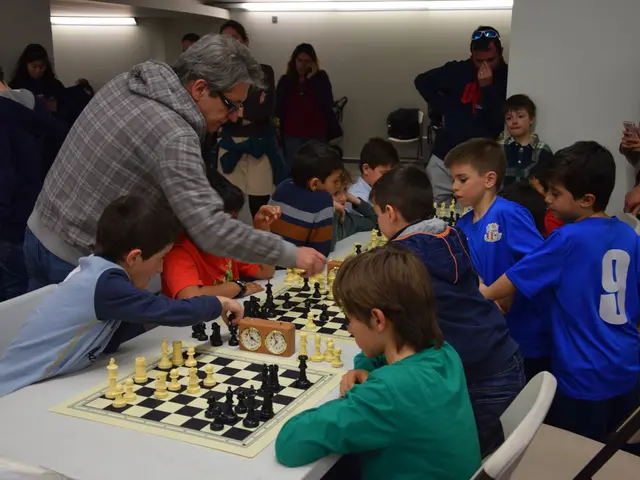A Change of Heart: Vice President Vance's Transatlantic Tango
By Lukas Wessling, New York
Vice-President Vance has reignited his affection for Europe, with a renewed interest in Ukraine and a somewhat strained relationship with Russia.
Once a fiery critic, US Vice President JD Vance is now expressing understanding and support towards Europe, even admitting to feelings of frustration over negotiations to end the ongoing conflict in Eastern Europe.
In a conversation with Wolfgang Ischinger, the founder of the Munich Security Conference, Vance reaffirmed their shared teamwork, acknowledging that while open criticism is necessary to maintain close relations, their cultures are too intertwined to allow for prolonged disagreements.
The Controversial Munich Speech
Recalling his speech at the Munich Security Conference in February, articles such as "firestorm" and "unprecedented reckoning" were used by European newspapers to describe Vance's bold accusations against Europe, accusing it of suppressing freedom of speech, eroding democracy, and even supporting far-right parties such as the AfD. German Vice Chancellor Habeck responded with calls for the dissolution of the "Western values community."
However, when the two met in Washington, Vance appeared less confrontational, expressing admiration for Ischinger's work during the Bosnian War negotiations in the mid-90s. Ischinger, a German diplomat at the time, was equally gracious, noting the critical role the US played in bringing peace to Europe three decades ago.
A Cool, Controlled Approach
Topics of trade, defense, and the ongoing war between Ukraine and Russia were brought up, but discussions were less contentious than during Vance's February speech. Vance admitted that both Russia and Ukraine have unrealistic expectations, appealing for cool heads and collaboration to find a solution that benefits both parties economically.
Economic Interests and Defense Spending
When asked about the trade talks with the EU, Vance emphasized the need for fair treatment for US companies, particularly in the tech sector. He expressed concerns over European manufacturers receiving more favorable treatment, suggesting that the EU should purchase more US-made weapons to stimulate growth in the defense industry.
Ischinger urged Vance to attend the Munich Security Conference again next year, with the US Vice President jokingly expressing uncertainty over being invited back after his polarizing speech in February.
NATO Alignment and German Defense
Vance expressed his optimism for Europe's efforts towards increasing their defense spending, acknowledging Germany's move to lift the debt brake on arms spending as a step in the right direction. He also highlighted Germany's renewed focus on its industrial might, seeing it as essential for geopolitical strength.
While tensions may lie beneath the surface, Vance's latest statements indicate a more conciliatory approach towards Europe, focusing on dialogue and collaboration to tackle complex geopolitical issues.
[Sources: ntv.de]
- J.D. Vance
- Attack on Ukraine
- German defense policy
- NATO
- Bundeswehr
- Ukraine
- Russia
Insights:
- Trade Negotiations with the EU: Vance expects fair treatment for US companies and sees opportunities for participation of US arms manufacturers in European defense efforts.
- Defense Spending and NATO Alignment: Vance is optimistic about Europe's efforts to increase their defense spending but emphasizes the importance of US involvement in these efforts. He sees Germany's recent move to lift the debt brake on arms spending as a positive step.
- Ukraine War: Vance acknowledges the need for a balanced approach to the conflict between Ukraine and Russia, appealing for cool heads and economic collaboration as a means to overcome the hate and resolve underlying issues.
- Vice President JD Vance recently expressed understanding and support towards Europe, admitting to feelings of frustration over negotiations to end the ongoing conflict in Eastern Europe, despite his previous criticisms.
- In a conversation with Wolfgang Ischinger, JD Vance reaffirmed their shared teamwork, acknowledging that while open criticism is necessary to maintain close relations, their cultures are too intertwined to allow for prolonged disagreements.
- During a meeting in Washington, Vance appeared less confrontational, expressing admiration for Ischinger's work during the Bosnian War negotiations in the mid-90s and emphasizing the need for fair treatment for US companies, particularly in the tech sector.
- Vance's latest statements indicate a more conciliatory approach towards Europe, focusing on dialogue and collaboration to tackle complex geopolitical issues, such as trade negotiations with the EU and defense spending within NATO, including Germany's renewed focus on its industrial might.








